About IAOEES
Board Committee Members - Batteries & Supercapacitors
The board committee members listed below are in order of time joining the IAOEES
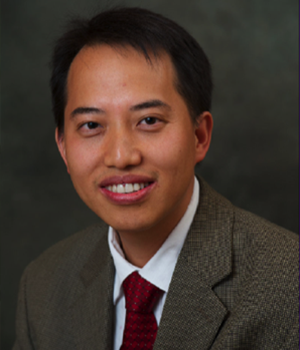 |
Dr. Zhongwei Chen
University of Waterloo, Canada
Dr. Zhongwei Chen is Canadian Research Chair Professor in Advanced Materials for Clean Energy, Director of Collaborative
Graduate Program in Nanotechnology and Director of Applied Nanomaterials & Clean Energy Laboratory at University of Waterloo.
His current research interests are in the development of advanced energy materials for metal-air batteries, lithium-ion
batteries and fuel cells. He received his Ph.D. in Chemical and Environmental Engineering from the University of
California-Riverside. Prior to joining the faculty at Waterloo in 2008, he was focusing on the advanced catalysts research
in the Los Alamos National Laboratory (LANL) at New Mexico, USA.Dr. Zhongwei Chen is Canada Research Chair Professor in
Advanced Materials for Clean Energy, Director of Collaborative Graduate Program in Nanotechnology and Director of Applied
Nanomaterials & Clean Energy Laboratory at University of Waterloo. His current research interests are in the development of
advanced energy materials for metal-air batteries, lithium-ion batteries and fuel cells. He received his Ph.D. in Chemical
and Environmental Engineering from the University of California-Riverside. Prior to joining the faculty at Waterloo in 2008,
he was focusing on the advanced fuel cell catalysts research in the Los Alamos National Laboratory (LANL) at New Mexico, USA.
He has published 1 book, 6 book chapters and more than 130 peer reviewed journal articles including Nature Communications, JACS, Angewandte Chemie, Advanced Materials, Advanced Energy Materials, Energy & Environmental Science, Nano Letters and ACS Nano. These publications have earned him to date over 10,000 citations with H-index 42 (Google Scholar). He is also listed as inventor on 13 US/international patents, with two licensed to start-up companies in USA. He founded Wattech Power Inc., a company to commercialize the zinc-air flow battery technology in September 2015. Dr. Chen also serves as an editorial board member for peer-reviewed journals including Scientific Reports (Nature Publishing), Frontiers in Fuel Cells, Canadian Journal of Basic and Applied Sciences and the Vice President of the International Academy of Electrochemical Energy Science (IAOEES). |
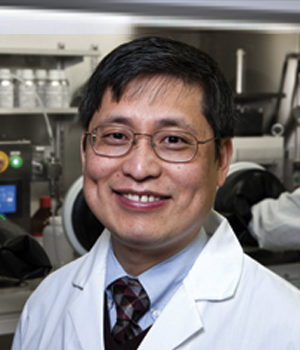 |
Dr. Chao-Yang Wang
Pennsylvania State University, United States
Dr. Chao-Yang Wang is William E. Diefenderfer Chair in Mechanical Engineering and Distinguished Professor of Mechanical Engineering, Chemical Engineering, and Materials Science & Engineering at the Pennsylvania State University. He has been the founding director of Penn State Electrochemical Engine Center (ECEC) since 1997.
Dr. Wang holds over 50 patents (U.S., China, EU and Japan) and has published two books, “Modeling and Diagnostics of Polymer Electrolyte Fuel Cells” by Springer and “Battery Systems Engineering” by Wiley. He has over 10,000 SCI citations and an H-index of 62 (web of science). Dr. Wang’s research interests cover the transport, materials, manufacturing and modeling aspects of batteries and fuel cells. |
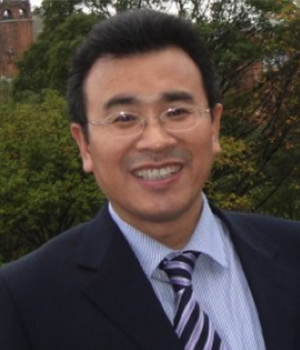 |
Dr. Jun Chen
Nankai University, China
Dr. Jun Chen is the Chair Professor of energy materials chemistry at Nankai University, the Director of Key Laboratory of Advanced Energy Materials Chemistry (Ministry of Education), a Chief Scientist of the National Nano Key Science Research, and the Vice Chairman of the Chinese Society of Electrochemistry. He received his B.S. and M.S. degrees from Nankai University in 1989 and 1992 respectively, and his Ph.D. from the University of Wollongong (Australia) in 1999.
He held the NEDO fellowship at the National Institute of AIST Kansai Center (Japan) from 1999 to 2002. His research activity focuses on nanomaterials, electrochemistry, batteries, fuel cells and solar cells with efficient energy storage & conversion. He has published over 150 journal papers and has strong links with industry. He is the recipient of a number of awards including the Eward Wicke Award (International Metal Hydride Committee, 2002), the Outstanding Young Scientist Award (NSFC, 2003), the Cheung Kong Scholar Professor (MOE, 2005), the National Natural Science Award (2nd prize, 2011), and the Australia China Alumni Award for Research and Innovation (ACAA, 2012). |
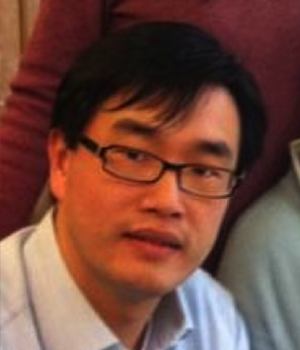 |
Mr. Joey Jung
EVT Power Inc., Canada
Mr. Joey Jung is the founder and President of EVT Power Inc., a company focusing on lithium ion and lead acid battery current collector development, and the Operations Manager of Kemetco Research Inc., a company provides service in the field of specialty analytical chemistry, chemical process, and extractive metallurgy. Mr. Jung, a registered Professional Engineer, received his MASc degree from University of British Columbia in 2000.
From 2000 to 2004, he was a research officer specialized in battery and fuel cell technology of BC Research Inc. From 2004 to 2007, he served as the Vice President and CTO of Power Technology Inc, a public company specialized in advanced lead acid battery development. Mr. Jung has over 15 years of R&D experience in applied electrochemistry and electrochemical engineering, including lead acid battery R&D, lithium ion battery R&D, fuel cell R&D, metal-air battery, electroplating / electrowinning R&D, and electroreduction of carbon dioxide R&D. He has published several papers and authored a book chapter regarding lead acid battery in the Wiley publication, “Electrochemical Technologies for Energy Storage and Conversion.” He has hold 11 U.S. patents / patent applications in the field of lead acid battery, lithium ion battery, and fuel cells. Mr. Jung is now the Treasurer of the International Academy of Electrochemical Energy Science (IAOEES). |
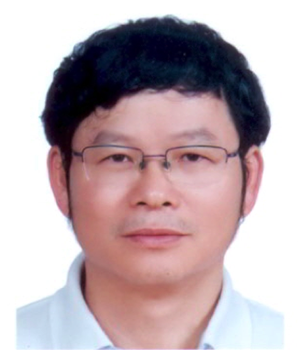 |
Dr. Bing-Joe Hwang
National Taiwan University of Science and Technology, Taiwan
Dr. Bing-Joe Hwang is the President of Electrochemical Society of Taiwan, a Fellow of the International Society of Electrochemistry (ISE), and also the Chair Professor at the Department of Chemical Engineering at the National Taiwan University of Science and Technology. His research work has spanned a wide range of subjects from electrochemistry to spectroscopy, interfacial phenomena, nano-materials science and theoretical chemistry.
His work has led to a better understanding of reaction mechanisms on nanoparticles and electrode’s surface and to an improved ability to predict the properties of potential new materials for both Li-ion batteries and fuel cells. He has published more than 280 scientific papers in renowned international journals with a total number of more than 5000 citations. He is a three time recipient of the outstanding research award from the National Science Council of Taiwan. Due to his excellent achievements in teaching and research and his substantial contribution to local industries, he has won: the 54th National Academic Award (2010) in Engineering and Applied Science given by the Ministry of Education of Taiwan, the 8th Y. Z. Hsu Scientific Chair Professor Award (2010) by Far Eastern Y. Z. Hsu Science and Technology Memorial Foundation, and the TECO award (2011) in Chemical Engineering and Materials Science awarded by TECO Technology Foundation. He was appointed as a foreign corresponding member of the Academy of Sciences of Lisbon at 2011. |
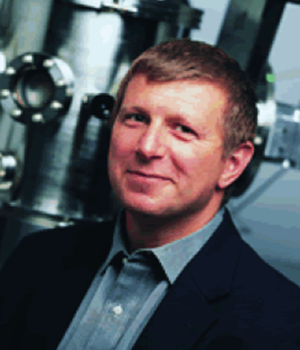 |
Dr. David Mitlin
University of Alberta, Canada
Dr. David Mitlin is a Professor in the Department of Chemical and Materials Engineering at the University of Alberta and a Principal Research Officer at the National Institute for Nanotechnology NRC. Dr. Mitlin's core expertise lies in synthesis - microstructure - properties relations of nanocomposites and thin films, and in materials characterization via TEM. His current activity is focused on the development of advanced nanomaterials for a variety of energy related applications such as ORR electrodes, electrochemical...
supercapacitors, lithium ion batteries, and metal hydrides. Recently Dr. Mitlin was a recipient of the Petro-Canada Young Innovator Award for the hydrogen storage research. Dr. Mitlin has published over 80 peer-reviewed journal articles, holds a U.S. patent, is a regular reviewer for a wide range of scientific journals including Nature Materials and JACS, is an Editor for the Journal of Materials Science, and serves on the Board of Review for Metallurgical and Materials Transactions. Prior to joining the University of Alberta in 2004, Dr. Mitlin was at Los Alamos National Laboratory (USA), where he was awarded a Directors Funded Postdoctoral Fellowship. From 2000 to 2002, Dr. Mitlin worked as an Integration Engineer at the IBM Semiconductor Research and Development Center, in Hopewell Junction NY. Dr. Mitlin received his Doctorate from U.C. Berkeley in 2000. |
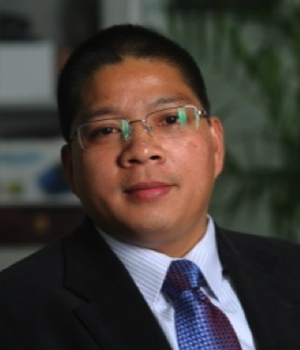 |
Dr. Zhaoping Liu
Chinese Academy of Sciences, China
Dr. Zhaoping Liu received his PhD in inorganic chemistry from University of Science & Technology of China (USTC) in 2004. He then worked as postdoctoral researcher in National Institute for Material Science (NIMS), Japan, and State University of New York (SUNY) at Binghamton, between 2004 and 2008. Since Sep. 2008 , he has worked in Ningbo Institute of Materials Technology & Engineering (NIMTE), Chinese Academy of Sciences. He current is the Director and Professor of Advanced Li-ion Battery Engineering Lab.
His main research interests include Li-ion batteries and graphene. He has published over 70 peer-reviewed papers with total citing of over 3,000, and received more than 70 patents. |
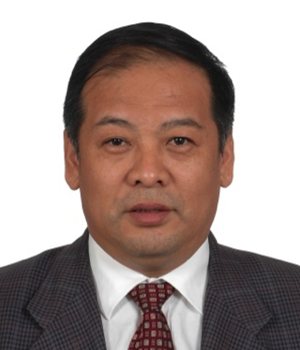 |
Dr. Huamin Zhang
Chinese Academy of Sciences, China
Dr. Huamin Zhang currently is a Professor and Header of energy storage division at the Dalian Institute of Chemical Physics (DICP), Chinese Academy of Science; He is also CTO of Dalian Rongke Power Co., Ltd, Chief Scientist of 973 National Project on Flow Battery, a Director of the state key lab of flow battery for energy storage and National Technical Committee on flow battery standardization. He obtained his bachelor degree from department of chemistry, Shandong University in 1982, he received his MS and PhD degree from Kyushu University in 1985 and 1988...
respectively, in Japan. After several years’ working at SUD-CHEMIE Japan, Osaka Gas Inc., Japan, he joined in DICP as a full professor in 2000. His research interests include the topic of energy and energy storage, e.g. fuel cells, flow batteries and batteries with high specific energy density. Dr. Zhang has co-authored more than 260 research papers published in refereed journals and more than 200 patents. He received various awards such as Japan Chemical Society Academic Award, Four ministries Outstanding Scientific and Technological Achievements Awards Scientific and Technological Progress Award in Dallian and Provincial S&T Progress Award for his achievement in research. |
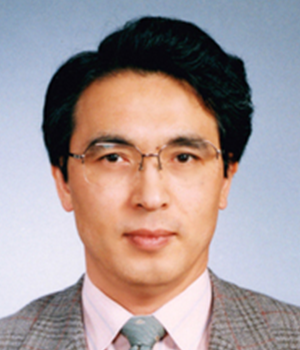 |
Dr. Masayuki Morita
Yamaguchi University, Japan
Dr. Masayuki Morita is currently a Professor in Graduate School of Science and Engineering at Yamaguchi University, Japan. Dr. Morita received his Dr. degree from Osaka University in 1980. He joined Faculty of Engineering at Yamaguchi University in 1980 as an Research Associate. He was promoted to Associate Professor in 1988, and to full Professor in 1996. Dr. Morita has been an active member of several International and Domestic Societies: Royal Society of Chemistry (RSC), International Society of Electrochemistry (ISE), Electrochemical Society... (ECS), Chemical Society of Japan (CSJ), Electrochemical Society of Japan (ECSJ), Surface Finishing Society of Japan (SFSJ), etc. His research interests are material designing and characterization in 1) Rechargeable batteries including lithium-ion, sodium ion and magnesium batteries, 2) Electrochemical capacitors including electric double-layer and pseudo capacitors, and 3) Electrocatalysts for direct alcohol fuel cells. Dr. Morita has so far published more than 250 original papers, 30 review/commentary papers, and 30 books/book chapters, in these research areas. |
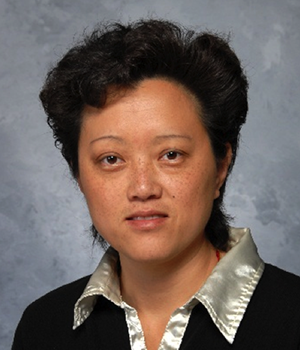 |
Dr. Mei Cai
General Motors, United States
Dr. Mei Cai is a General Motors Technical Fellow and the Manager of Energy Storage Materials Group at General Motors Global Research and Development Center. She has the responsibility for technology innovations in the area of advanced energy storage materials development for vehicular application. She has extensive experience in many of the energy materials research area including solar cells, hydrogen production and storage, nature gas storage, fuel cells, batteries and capacitors...
Dr. Cai received her M.S. and Ph.D. degree in 1993 and 1999 respectively, both in Chemical Engineering. She has extensive experience in novel material processing techniques for automotive applications. Her current research interests include synthesizing and processing of nanostructured materials, nanocomposites, and their applications in clean energy field. In particular, she has been working with carbon, graphite, graphene, metal oxides, and their nanocomposites with engineering designed and well controlled nanostructures as energy storage and electrochemical energy conversion materials. Dr. Cai joined the GM R&D staff in 1995. She is the author and co-author of over 100 issued/pending US patents and over 80 peer reviewed scientific publications. |
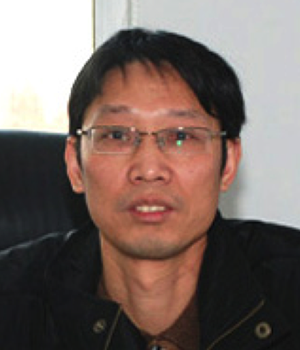 |
Dr. Zifeng Ma
Shanghai Jiao Tong University, China
Dr. Zifeng Ma is a Distinguished Professor and Chair of the Department of Chemical Engineering, the Vice Dean of the Energy Research Institute, the Founding Director of the Institute of Electrochemical & Energy Technology at Shanghai Jiao Tong University, and the Vice Chairman of China Association for Hydrogen Energy (CAHE). Dr. Ma graduated from Zhejiang University in 1985 and obtained his master’s degree from the same university in 1988, and his doctorate from the South China University of Technology in 1995...
Dr. Ma is a Member of Technical Advisory Committee at Thunder Sky Battery Limited since March 8, 2011. Between 2000 and 2001, Dr. Ma was a Visiting Scientist at the United States Department of Energy’s Brookhaven National Laboratory (2000-2001), a Guest Professor at Bonn University with the sponsorship of the Deutsche Forschungs-gemeinschaft (German Research Foundation), a self-governing organization for science and research in Germany (2004). In 2007, Dr. Ma was appointed as a Chief Scientist of the National Basic Research Programme of China (the 973 programme) for the fuel cell electric vehicles. In addition, Dr. Ma is a Council Member of Chinese Renewable Energy Society and a Deputy Director of its specialist sub-committee on hydrogen energy, a Member of specialist sub-committee on electro-chemistry of Chinese Chemical Society, a Member of specialist sub-committee on chemical engineering of the Chemical Industry and Engineering Society of China, and an active Member of The Electrochemical Society (USA). Currently, Dr. Ma serves as a member of the editorial board of the Journal of New Materials for Electrochemical Systems, Journal of Chemical Industry and Engineering, Journal of Chemical Engineering of the Chinese Universities and Journal of Shanghai Jiao Tong University. Dr. Ma’s research areas are new materials for electrochemical systems, PEM fuel cell, lithium-ion battery, heterogeneous catalysis. The main projects he had ever led including (1 ) Basic study to the low cost and high density energy storage systems for electric vehicle, a 973 project supported by Ministry of Science and Technology (MOST) of China (2007-2011); (2) Electrocatalysis and kinetics for PEMFC systems, funded by Natural Science Foundation (NSF) of China (2003-2006); (3) Nanocarbon materials for fuel cell and rechargeable lithium batteries, an International Science and Technology Cooperation Project, funded by Shanghai Science and Technology Commissions (2002-2004); (4) Mechanism of hydrogenation reaction in a PEMFC reactor, funded by Natural Science Foundation (NSF) of China (2001-2003); (5) Catalysts study for the synthesis of b-ionone from linalool, funded by Zhejiang Medicine CO. Ltd., (2000-2002); (6) Electrocatalyst and its electrochemical performance for PEMFC, funded by Natural Science Foundation of Guangdong Province (1999-2001); and (7) The NEMCA effect of Solid State Electrochemical Reactor, funded by NSF of China (1995-1998). |
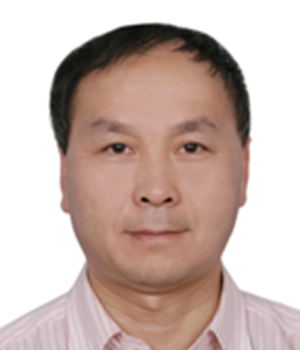 |
Dr. Yuezhong Meng
Sun Yat-sen University, China
Dr. Yuezhong Meng is the Pearl-River Chair Professor of Polymer Chemistry and Physics at Sun Yat-sen University in Guangzhou, China, and the director of the Key Laboratory of Low-carbon Chemistry and Energy Conservation of Guangdong Province, leading a group of 45 academic staffs and graduate students. Dr. Meng received his B.Sc. and M.Sc. degrees from Dalian University of Technology, China in 1983 and 1986, respectively, and his Ph. D. in polymer chemistry from the same university in 1995 under the supervision of Professor Allan S. Hay (McGill University).
He then joined the City University of Hong Kong as a Research Fellow from 1996 until 2003. During 1998 to 2001, he was a postdoctoral research fellow at McGill University of Canada. His research areas include exploratory functional polymers, and new energy materials. One of Dr. Meng’s inventions, ‘‘highly efficient fixation of carbon dioxide into a biodegradable polymer’’, has been commercialized by Tianguan Group Co. Ltd. since June 2007. This generic invention has created a patent portfolio of more than 52 patents including 3 US patents, covering various aspects of the polymerization and the properties of polymers made by carbon dioxide fixation. Dr. Meng was chosen as a member of the prestigious "Hundred Talents" by Chinese Academy of Sciences in 1999. He is the author of two chapters in two English textbooks, and he has authored 261 publications in refereed international journals (more than 101 papers with IF greater than 3.0) and has 7 U.S. patents and 76 Chinese patents. |
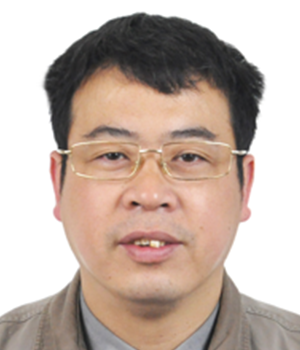 |
Dr. Yuping Wu
Fudan University, China
Dr. Yuping Wu is a Professor in the Department of Chemistry at Fudan University (Shanghai, China), and has been a co-Chairman of serial conference of IUPAC International Conference on Novel Materials and their Synthesis (NMS: www.nms-iupac.org) since 2006. Dr. Wu obtained his Ph. D. from Institute of Chemistry, Chinese Academy of Science (Beijing, China) in 1997. Then he moved to Tsinghua University (Beijing) for postdoctoral research. From 1999 to 2001, he was a Visiting Researcher at Waseda University (Tokyo, Japan).
From 2001 to 2003, he was a Humboldt Fellow at Chemnitz University of Technology (Chemnitz, Germany). In 2003, he came back to China as a full professor in Department of Chemistry at Fudan University. Since 1994, Dr. Wu has published over 220 papers in peer-reviewed journals, contributed 5 monographs on lithium batteries with sale above 30,000 copies, and 5 chapters. His citation number is over 5000, and H-index is 39. Dr. Wu’s main research areas are anode materials, cathode materials and polymer electrolytes for lithium ion batteries, supercapacitors, novel energy storage systems such as aqueous rechargeable lithium batteries (ARLBs), as well as solar hydrogen. |
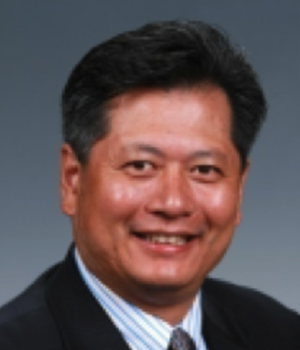 |
Dr. Gary Yang
UniEnergy Technologies, United States
Dr. Gary Yang co-founded UniEnergy Technologies in 2012 and currently serves as CEO and President of the company, with a mission to commercialize new generation vanadium redox flow batteries (VFRB) and provide energy storage solutions for the ever increasing adoption of renewable powers and implementation of smart, reliable grids. Dr. Yang is a Fellow of ASM International. Previously, Dr. Yang was a Lab Fellow, the highest science and technology rank, at Pacific Northwest National Laboratory (PNNL) of the US Department of Energy (DOE).
He played a pivotal role in establishing the Grid Energy Storage Program at the lab, and led the program that grew to over an $8M annual budget and conducted extensive RD&D in redox flow, Na-halide, and Li-ion batteries, and in the discovery of new battery concepts. Under Gary’s leadership, the PNNL team with over 30 scientists, engineers and post-doctorates made several breakthroughs in battery storage technologies including a new generation of vanadium redox flow batteries. Earlier, Dr. Yang was a Senior Scientist and later a Chief Scientist leading efforts in R&D of solid oxide fuel cells (SOFC) and hydrogen storage materials. He joined PNNL in early 2001, after 5 year experience as a materials engineer in the auto parts industry and extensive education and training in materials science, engineering and electrochemistry, at Jilin University, the University of Connecticut, and Carnegie Mellon University. Dr. Yang was selected as a Fellow of ASM International in recognition of “his outstanding contribution to advanced materials and electrochemical energy conversion and storage ….” He has published over 200 research articles, 13 book chapters and editorials, organized over 20 symposiums/conferences, and delivered numerous invited speeches. He is an inventor of over 50 US and foreign patents (including pending). His efforts in SOFC’s and VFRB’s won him twice the Federal Laboratory Consortium’s (FLC) Excellence in Technology Transfer Award, one of the most prestigious US government awards on technology development and commercialization. |
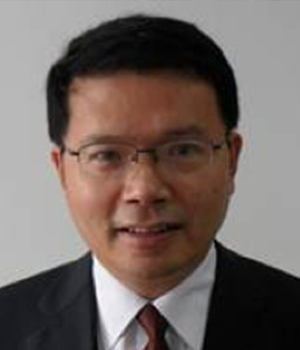 |
Dr. Dingguo Xia
Peking University, China
Dr. Dingguo Xia is a Professor and Vice-Dean of the School of Energy and Resource Engineering at Peking University, and also the Chang-Jiang Professor selected by Chinese Ministry of Education. Dr. Xia is the Board executive Committee Member of Beijing Society of Chemical Engineering,and Society of Chinese Energy Science Instrument and Equipment. Dr. Xia obtained his Ph.D from University of Science & Technology Beijing. During 2004 to 2005, he worked as a visiting Professor at the National Research Council of Canada, and during 2002 to 2003,..
he worked as a visiting Professor in Nants University, France. He has published 1 book, 3 book chapters and more than 100 papers in high-impacting journals. He has received 1 US patents and 30 Chinese patents. His current research interests are in the development of advanced electrode materials for lithium-ion batteries and fuel cells. |
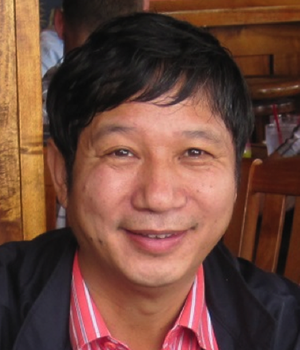 |
Dr. Qingyu Li
Guangxi Normal University, China
Dr. Qingyu Li is a professor in School of Chemistry and Pharmaceutical, the Director of New Energy Material and Technology Laboratory, the director of Institute of Applied Chemistry at Guangxi Normal University, China, and also a Visiting Professor at the Research Institute of Tsinghua University in Shenzhen, China. Dr. Li received his Ph.D. degree in non-ferrous metallurgy at Central South University, China, in 2003. The technical expertise areas of Dr. Li are (1) New energy material, (2) New energy technology, and (3) Applied electrochemistry...
and Non-ferrous metallurgy. Dr. Li has developed many leading techniques such as “Production Technology of Ambient Curing TiB2 Cathode Coating for Aluminum Electrolysis”, “Production Technology of Oxidation Resistant Coating for Carbon Anode of Aluminum Electrolysis”, “Production Technology of LiFePO4 Cathode Material for Power Lithium-ion Batteries”, “Production Technology of Lithium-ion Batteries”, “Production Technology of Supercapacitors” and so on. Dr. Li holds more than 20 CN patents and has won the second award of China Non-ferrous Metal Industrial Science and Technology and the second award of Guangxi technical invention. |
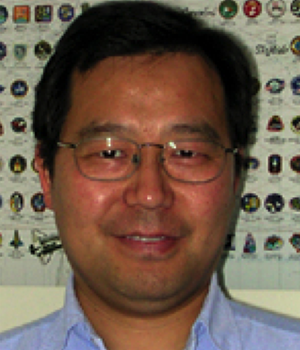 |
Dr. Jun Li
Kansas State University, United State
Dr. Jun Li is a Professor in Department of Chemistry at Kansas State University and Associate Editor of IEEE Transactions on Nanotechnology. Dr. Li obtained his B.S. in Chemistry from Wuhan University in 1987, his Ph. D. in Chemistry from Princeton University in1995, respectively. During 1995 to 1997, he did his Postdoctoral research associate at Cornell University. With scientific training in electrochemistry and surface sciences, Dr. Jun Li has developed his research career on nanosciences and nanotechnologies through his employment with Molecular Imaging Co. ...
(1997-1998), the Institute of Materials Research and Engineering (Singapore, 1998-2000), NASA Ames Research Center (2000-2007), and Kansas State University (2007 – present). He has published over 130 peer-reviewed papers, book chapters, and edited book. He is the inventor in 18 patent applications. His research work in nanotechnology has been highlighted in over 40 public news reports (including Nature, MIT Technology Review, etc.). He received the first annual Nano50 Award by NASA Tech Briefs under Innovator category in 2005. Dr. Li has been serving as an associate editor for IEEE Transactions on Nanotechnology since 2007. Dr. Li’s research interests are focused on integrating nanomaterials, particularly carbon nanotubes, semiconductor nanowires and metal oxides, into functional devices for (1) next-generation nanoelectronics (on-chip electrical interconnects and thermal interface materials); (2) energy conversion and storage technologies (dye-sensitized solar cells, electrochemical supercapacitors, and Lithium-ion batteries); and (3) nanobiosensors (nanoelectrode array based ultrasensitive biosensors, electrode materials for improved electrical neural interfaces, and nanoscale dielectrophoretic chips for capture and detection of bacterial and viral particles). |
 |
Dr. Harry Hoster
Technische Universität München, Germany
Dr. Harry Hoster is the Scientific Director of Technische Universität München (TUM) CREATE in Munich, Germany. After receiving his Ph.D degree in physics from Bonn University in 1996, Dr. Hoster was awarded a fellowship by the German Fonds der Chemischen Industrie for full-time doctoral study on anode materials for methanol fuel cells. After working on a postdoctoral research project in São Paulo, in 2003 he set up a surface science and electrochemistry research group at the Institute of Surface Chemistry and Catalysis under Professor R.J. Behm in Ulm. Since 2010,..
he has been an Associate Professor in the Technical Electrochemistry department at the Institute of Technical Electrochemistry at TUM CREATE. Since 2011, he has also been an Associate Professor at the Nanyang Technological University, Singapore. Dr. Hoster oversees the scientific work of the entire TUM CREATE project, sits on the Management Team, and is the Principal Investigator for Research Project 1 - Electrochemistry and New Materials - the team dedicated to improving battery technology, the key to the success of electric vehicles. Dr. Hoster’s research explores the physical and chemical properties of surfaces and solids. His goal is rational design: improving electrode materials for fuel cells and batteries. Furthermore, he aims to improve battery monitoring systems by integrating laboratory methods directly into the batteries. Dr. Hoster has published many scientific papers and given keynote speeches in international conference. |
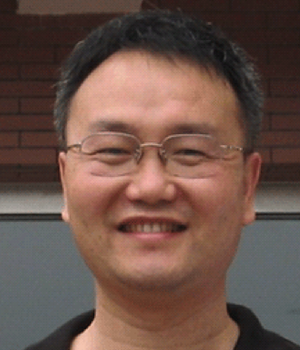 |
Dr. Yong Yang
Xiamen University, China
Dr. Yong Yang is a Distinguished Professor of Chemistry in State Key lab for Physical Chemistry of Solid Surface, and Director of Research institute of Electrochemistry Science and Engineering at Xiamen University (XU). Dr. Yang obtained his Ph.D. in Physical Chemistry at Xiamen University in 1992. After one-year (1997–1998) academic visit at Oxford University, he has been in his professor position since then. His main research interests are new electrode/electrolyte materials, in situ spectroscopic techniques, interfacial and reaction mechanism...
study in electrochemical energy storage and conversion system, especially for Li-ion batteries. Dr. Yang has published many scientific papers in high-impacting peer-reviewed journals, and organized several conferences and given many keynote speeches. He has obtained several national/international research awards since 1996, including 2014 Technology Award by IBA (International Battery Association). He has also supervised about 50 Postdoctoral fellows, PhD and MSc students in the last 20 years. |
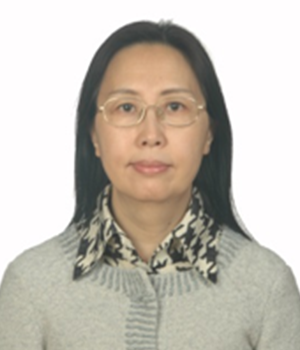 |
Dr. Geping Yin
Harbin Institute of Technology
Dr. Geping Yin is a Professor, the Vice-Dean of School of Chemical Engineering & Technology and Director of Institute of Advanced Chemical Power Sources at Harbin Institute of Technology. Prof. Yin received her B.S. and Ph.D. degree in Electrochemistry from Harbin Institute of Technology in 1982 and 2000, respectively. After completing her B.S. degree, she took positions as lecturer and Associate Professor at Harbin Institute of Technology in 1988 and 1993, respectively. After completing her Ph.D. degree, she took a position...
as a professor at Harbin Institute of Technology. From 1985, she carried out two terms of visiting scholar research in Tokyo Institute of Technology and Yokohama National University. Dr. Yin has over thirty years of R&D experience in theoretical and applied electrochemistry, including over fifteen years of fuel cell R&D. Dr. Yin holds several adjunct directerships, including one at Power Sources Committee of China Institute of Communications and one at China Industrial Association of Power Sources. Dr. Yin is an active member of Electrochemistry Committee of the Chemistry Society of China and Lead-acid Batteries Committee of Electrotechnical Society of China. She is also a member of Editorial Board of Journal of Chemical Engineering of Chinese Universities, Electrochemistry, Chinese Journal of Power Sources, Battery, Chinese LABAT Man and Carbon. Up to now, Dr. Yin has published more than 190 SCI papers, which have been cited for more than 4000 times by SCI papers (H factor 35). |
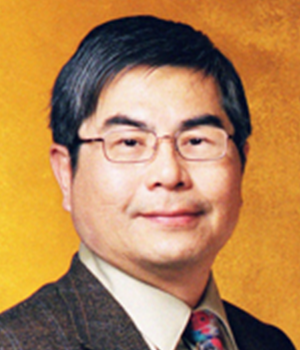 |
Dr. Bor Yann Liaw
University of Hawaii, United States
Dr. Bor Yann Liaw is a faculty member with Hawaii Natural Energy Institute of the University of Hawaii at Manoa since 1989. He served in the Battery Division Executive Committee since 2006 and is the current chair for 2012-2014. He is the past President of the International Battery Association and a member of the Executive Board. He holds the advisory boards for journals such as Ionics and Journal of Asian Electric Vehicles. He received a Ph.D. in Materials Science and Engineering under Professor Robert A. Huggins from Stanford University in 1988.
.. and he conducted a postdoctoral fellow study under Professor Werner Weppner at the Max-Plank-Institute for Solid State Research in Germany during 1988-1989. His research work includes advanced power source and energy storage systems and biofuel cells. More recently, his major interest focuses on commercial battery evaluation, diagnostics and prognostics. He was a recipient of an NEDO/MITI International Joint Research Program award in 1997-97, an ASEE/ONR Summer Research Fellowship at Naval Research Laboratory in 2005, and a Japan Society for the Promotion of Science (JSPS) Visiting Research Fellowship at Kyoto University in 2005. |
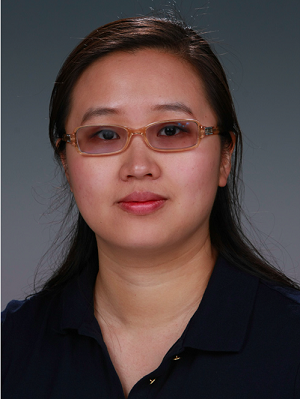 |
Dr. Jie Xiao
Pacific Northwest National Laboratory (PNNL, USA-DOE), USA
Dr. Jie Xiao is currently a senior scientist at the Pacific Northwest National Laboratory (PNNL, USA-DOE). She received her Ph.D.
degree in materials chemistry from State University of New York (SUNY) at Binghamton in 2008. Before that, she graduated from
Wuhan University, China, with M.S. (2004) and B.S (2001) degrees in Electrochemistry. Dr. Xiao’s research interest spans from
fundamental study to practical applications of energy-related materials and systems such as Li-ion, Li-S, metal air and redox
flow batteries for vehicle electrification/stationary applications as well as micro-batteries for acoustic fish tags. Her work
has been widely reported by many media including C&EN, R&D magazine, U.S. Department of State, Scientific American etc.
Dr. Xiao is also the recipient of several awards including Ronald L. Brodzinski Early Career Exceptional Achievement Award, R&D 100 award and Zapperd Award from the American Chemical Society etc. She has published more than 70 peer-reviewed journal papers (Google H-index=39), 2 book chapters and filed 17 US patents (issued and applied) in the field of energy storage and conversion. |
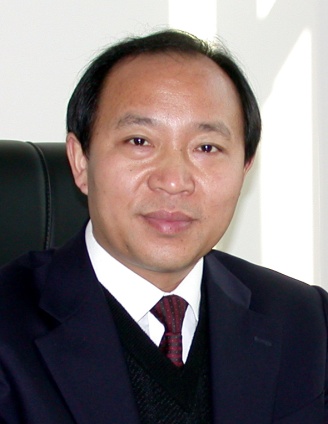 |
Dr. Shuting Yang
Henan Normal University, China
Dr. Shuting Yang is a Professor at Henan Normal University, the President of Henan (Xinxiang) Battery Research Institute, Director of the Henan Engineering Research Center of Motive Power and Key Materials, a collaborative Innovation Center of Henan Province for Motive Power and Key Materials, and an Excellent Expert of Henan Province. He received his Ph.D. of Materials Processing Engineering from Dalian University of Technology. The technical expertise areas of Dr. Yang are the key Materials for power lithium ion batteries.
Up to now, he has published more than 100 scientific papers in high-impacting peer-reviewed journals and acquired nearly 20 invention patents and three the Second Class Awards for Progress in Science & Technology of Henan Province. |
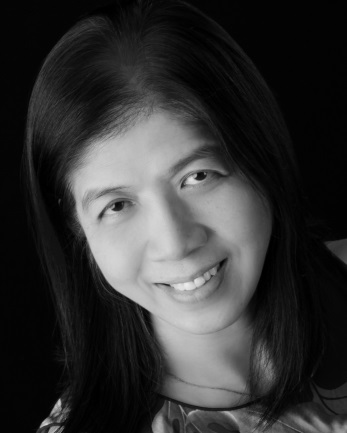 |
Dr. Keryn Lian
University of Toronto, Canada
Dr. Keryn Lian received her B.Sc degree in Polymer Engineering from Tongji University, Shanghai, China. She obtained her M.Sc degree in Electrochemistry from University of Calgary, and Ph.D. in Materials Science and Engineering from the University of Toronto (UofT). Currently, Keryn Lian is Associate Professor at the Department of Materials Science and Engineering, University of Toronto. She leads the Flexible Energy and Electronics Lab (F.E.E.Lab) at UofT working on solid, flexible and wearable energy storage technologies. Her research interests include high performance carbon and pseudocapacitive electrode materials and proton-, anion- conducting and ionic liquid-based polymer electrolytes for electrochemical capacitors, batteries and hybrid energy systems.
Prior to her current position, she was a distinguished member of the technical staff and manager at Motorola Labs, where she conducted and led research in RF-MEMS and microfluidics with advanced printed wiring board (PWB) technology and printed organic memories. Dr. Lian has over 90 journal and referred conference publications. She also holds 35 issued US patents and numerous other patents. |
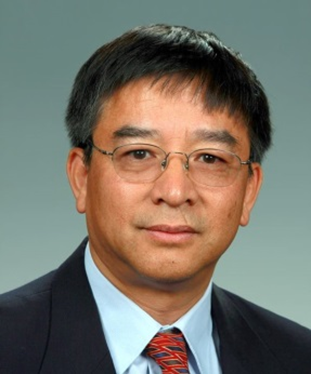 |
Dr. Ji-Guang (Jason) Zhang
Pacific Northwest National Laboratory (PNNL), USA
Dr. Ji-Guang (Jason) Zhang is a Laboratory Fellow at the Energy and Environment Directorate of the Pacific Northwest
National Laboratory (PNNL) located in Richland, Washington. Currently, he is the group leader for PNNL’s efforts in
the area of energy storage for mobile applications. He has 25-year experience in the development of energy storage
and energy efficient devices, including lithium-ion batteries, lithium-air batteries, Lithium-metal batteries,
Li-S batteries, thin-film solid-state batteries, and electrochromic devices. Prior to joining PNNL in June 2007,
Dr. Zhang served for seven years as Chief Technology Officer of Excellatron Solid State LLC in Atlanta, Georgia. In
this capacity, he led a team that developed technologies for high-throughput, low-cost production of thin-film
lithium batteries and high capacity lithium-air-batteries.
From 1998 to 2000, he served as the Director of Product Development at Macro Energy-Tech, Inc. in Redondo Beach, California and engaged on the development of polymer lithium-ion batteries. From 1990 to 1998, he was a Postdoctoral Fellow/Staff Scientist/Senior Scientist at the National Renewable Energy Laboratory where he investigated electrochromic materials/windows and managed several projects on lithium-ion batteries. Dr. Zhang holds 16 patents (with another 20 patents pending) and publishes more than 180 papers in refereed professional journals. He was the co-recipient of two R&D 100 awards and also chaired/co-chaired two Beyond Li-ion symposiums in the last a few years. Dr. Zhang received his Ph.D. in Experimental Condensed Matter Physics from the University of Kentucky in 1990. |
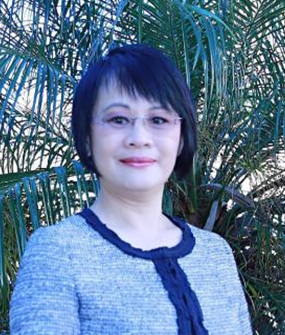 |
Dr. Jiazhao Wang
University of Wollongong, Australia
Dr. Jiazhao Wang is a professor at the Institute for Superconducting and Electronic Materials, University of Wollongong, Australia. Her research activities are focused on electrochemical energy storage in batteries, including Li-ion batteries, Li-Air batteries, Li-S batteries, Na-ion batteries and Lead-acid and supercapacitors. Her research group has initiated several new research directions at UOW, which are pioneer research fields in Australia, including: (1) Development of inorganic-conducting polymer composites and ionic-liquid-based electrolytes for rechargeable lithium batteries to improve their energy and power densities and safety performance; (2) Advanced free-standing electrode materials for flexible batteries for modern electronics; (3) Next-generation rechargeable batteries: Lithium-sulphur batteries; and (4) Novel battery systems: Li-ion air batteries with ionic-liquid–based electrolytes.
Dr. Wang has won 30 research grants including 20 Australian Research Council (ARC) grants as a chief investigator (CI). She is solo CI, first CI and APD fellow for 4 Discovery Projects (DP) and 3 Linkage Projects (LP).
|
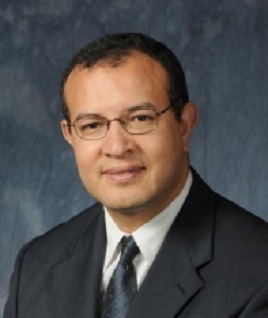 |
Dr. Khalil Amine
Argonne National Laboratory, USA
Dr. Khalil Amine is an Argonne Distinguished Fellow and the Manager of the Advanced Battery Technology programs at
Argonne National Laboratory, where he is responsible for directing the research and development of advanced materials
and battery systems for HEV, PHEV, EV, satellite, military and medical applications. Dr. Amine currently serves a
committee member of the U.S. National Research Consul, US Academy of Sciences on battery related technologies. He is
also the president of IMLB LLC and international automotive battery conference.
Among his many awards, Dr. Khalil is a 2003 recipient of Scientific America’s Top Worldwide 50 Researcher Award, a 2009 recipient of the US Federal Laboratory Award for Excellence in Technology Transfer, and is the five-time recipient of the R&D 100 Award, which is considered as the Oscar of technology and innovation. In addition, he was recently awarded the ECS battery technology award and the international battery association award. Dr. Amine holds or has filed over 140 patents and patent applications and has over 378 publications. From year 2000, Dr. Amine is the most cited scientist in the world in the field of battery technology. He is also an associate editor of Nano-Energy Journal. |
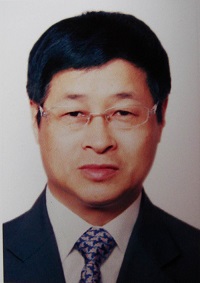 |
Dr. Zhaoyin Wen
Shanghai Institute of Ceramics, Chinese Academy of Sciences (SICCAS), China
Dr. Zhaoyin Wen is currently a professor and leader of Secondary Battery Research group, and director of the
Energy Materials Research Center in the Shanghai Institute of Ceramics, Chinese Academy of Sciences (SICCAS).
He is also the Chairman of the Chinese Society for Solid State Ionics. He obtained his bachelor degree from the
Department of Materials Science and Engineering, Nanjing University of Technology in 1984, he received his MS and
PhD degrees from SICCAS in 1987 and 1998 respectively. He was employed as a full professor since 1999 in SICCAS.
He ever worked in the Department of Chemistry, Mie University, Japan during 1999-2001 as a guest professor on all
solid state lithium batteries.
His research interests are materials and batteries for energy storage, including (1) Na metal based secondary batteries, e.g. sodium sulfur battery and sodium chloride battery, (2) Lithium sulfur battery, (3) Li-air battery and other new lithium ion battery materials. Dr. Wen has so far published for more than 250 research papers in refereed journals and more than 100 patents. He received various awards such as Top Ten Chinese Science and Technology Achievements (2010 on Large Capacity Sodium Sulfur Battery for Energy Storage), First Invention Award of Shanghai Municipality (2012 for Mass Production Technology for Large Capacity Sodium Sulfur Battery), National Excellent Scientific Researcher (2102). |
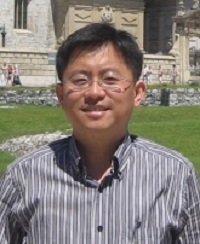 |
Dr. Quan-Hong Yang
Tianjin University, China
Dr. Quan-Hong Yang received his BS in polymer engineering from Tianjin University in 1994 and obtained his PhD on
carbon materials from ICC-CAS in 1999. He continued his carbon research in IMR-CAS, CNRS France, Tohoku University
and Southampton University. He became a full professor of Tianjin University in 2006 and is now also an adjunct
professor of Graduate School at Shenzhen of Tsinghua University. His research is related to novel carbon materials,
from porous carbons, tubular carbons to sheet-like graphene with their applications in energy storage (lithium-based
batteries and supercapacitors) and environmental protection.
He serves as the member of the editorial boards of ten journals including Carbon, Science China Materials, Energy Storage Materials, Materials Research Express (IOP), Transactions of Tianjin University. His research contributes to over 100 peer-reviewed papers published on Nature Chem, JACS, Adv Mater, Energy Enviorn Sci, Nano Lett, ACS Nano, etc. He received National Science Fund for Distinguished Young Scholars, Nature Science Award of Tianjin (1st class, 2013), the Science and Technology Progress Award of Tianjin (1st class, 2012) and the Brian Kelly Award (2004). Now he holds over 30 patents about graphene and nanocarbons. |
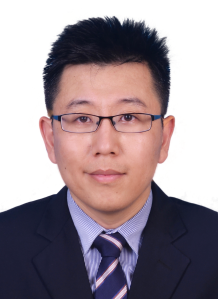 |
Dr. Zhiyu Wang
Dalian University of Technology (DUT), China
Dr. Zhiyu Wang is currently a Professor at School of Chemical Engineering, Dalian University of Technology (DUT). He
received his Ph.D. in Chemical Engineering from DUT in 2008. He did his postdoctoral research at National University
of Singapore (NUS, 2008-2009), Nanyang Technological University (NTU, 2009-2012) and Technische Universität Dresden,
Germany (2012-2014). His research focuses on the design and fabrication of carbon-based functional nanocomposites for
electrochemical energy storage and conversion (e.g., secondary batteries, electrocatalysis, etc.).
He has published more than 50 papers in peer-review journals such as Nature Commun., Adv. Mater., JACS, EES. with the citation of over 3800 times. Since 2014, he served as a member of editorial board of Scientific Reports. He also received a number of prestigious awards including Recruitment Program of Global Youth Experts in China and Alexander von Humboldt Fellowship. In 2016, he was granted the National Science Fund for Excellent Young Scholars by NSFC. |
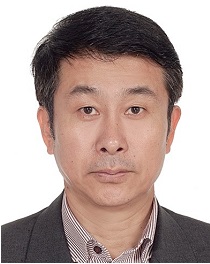 |
Dr. Guohua Li
SINOCHEM International Corporation, China
Dr. Guohua Li is the Director of New Energy Research Institute, SINOCHEM International Corporation.
He has extensive experience in materials research and development for Li-ion batteries. Prior to joining SINOCHEM in 2018,
Dr. Li ever worked in Sony Corporation (1998-2017), Murata Manufacturing Co.,
Ltd (2017-2018) after his career in Tianjin University, China and Tokyo Institute of Technology, Japan.
He is an active member of The Electrochemical Society (ECS), The Chinese Chemical Society.
|
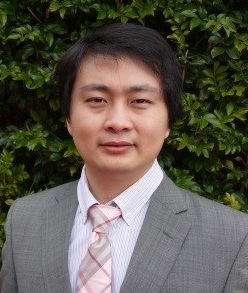 |
Dr. Shulei Chou
University of Wollongong (UOW), Australia
Dr. Shulei Chou is a Senior Research Fellow in ISEM at University of Wollongong (UOW).
He obtained his bachelor (1999) and master degree (2004) in Nankai University, China.
His PhD degree was received from UOW with the best thesis award in 2010.
He received the 2014 Scopus Young Researcher Awards - Winner for Engineering & Techonology.
His research has been focused on energy storage materials for battery applications,
especially on novel composite materials, new binders, and new electrolytes for Li/Na-ion and Metal-Air batteries.
He have published more than 140 international journal papers including Science, Journal of the American Chemical Society, Advanced Materials, Nature Communications, Nano Letters, Advanced Energy Materials with a total citation more than 5300. He was invited as a Guest Editor for Advanced Materials & Advanced Energy Materials for 2 special issues for next generation batteries. He is also servicing as Editorial board member for Scientific Reports. |
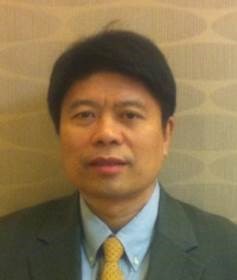 |
Dr. Feng Pan
Peking University Shenzhen Graduate School, China
Dr. Feng Pan is the founding Dean of School of Advanced Materials, Peking University Shenzhen Graduate School,
Director of National Center of Electric Vehicle Power Battery and Materials for International Research,
and a Chinese National 1000-telant Professor. Prof. Pan obtained his B.S. from Dept. Chemistry,
Peking University in1985 and PhD from Dept. of P&A Chemistry,University of Strathclyde, Glasgow, UK,
with "Patrick D. Ritchie Prize” for the best Ph.D. in 1994.
With more than a decade experience in large international incorporations,
Prof. Pan has been engaged in fundamental research and product development of novel optoelectronic and
energy storage materials and devices.
As Chief Scientist, Prof. Pan led 8 entities in Shenzhen to win the 150 million RMB grant for the national EV-battery innovation project in 2013-16. As Chief Scientist, Prof. Pan led 12 entities to win National Key project of Material Genomic Engineering (MGI) for Solid State Li-ion Battery in China in 2016. He has led his group to achieve outstanding research vs. MGI on electrochemistry, battery and materials by combination of comprehensive experimental tests and theoretical calculations, e.g. developing novel cathode materials and methods to study related electrochemical mechanism and exploring new generation of solid-state batteries. He has published more than 250 peer-reviewed papers in international journals and book chapters and 80 patents for inventions. He has been selected as one of the 2016 winner of Outstanding Research Award of Advanced Lithium Batteries for Automobile Applications (ABAA) and the 2018 winner of ECS Battery Division Technology Award. |
